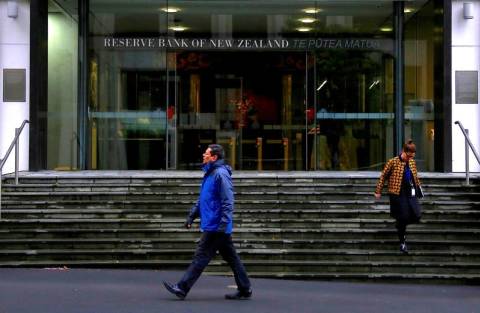By Lucy Craymer

WELLINGTON (Reuters) - New Zealand’s jobless rate held just above historic lows while wage inflation hit a 14-year high, raising the prospect that the central bank might have to increase rates more aggressively than economists expect.
The unemployment rate rose to 3.3% in the June quarter, Statistics New Zealand data showed on Wednesday, slightly higher than a forecast 3.1% by economists but just above the historic low of 3.2% in the previous quarter.
Wage growth was strong in the quarter with the private sector labour cost index (LCI) recording a 3.4% lift on year, above a forecast 3.3% increase. This was its biggest increase since 2008.
Nearly two-thirds of roles surveyed in the LCI saw an increase in ordinary time wage rates in the year ended June 2022 – the highest level since the series began in 1993, business employment insights manager Sue Chapman added in a statement.
Most economists expect the Reserve Bank of New Zealand (RBNZ) to raise rates by 50 basis points later this month and hotter than expected wage inflation to feed into expectations of more rate hikes than initially expected.
ANZ Bank said in a note the labour market is likely to remain a driver of persistently high inflation over the next year.
The risk of a wage price spiral is certainly not abating. That should keep the RBNZ on track to hike the OCR (official cash rate) to 4% by the end of the year as per our forecasts, it added.
The RBNZ in July raised its official cash rate to 2.50%, the latest in a series of hikes that has taken the benchmark from a record low 0.25% in October last year.
The bank has also signalled plans to increase the rate to 4.0% by the middle of 2023. However, economists are mixed on whether the RBNZ will need to go that far.
The risk for the RBNZ is that wage pressures provide an avenue for the recent bout of price shocks to turn into sustained inflation over time, said Westpac acting chief economist Michael Gordon.
He said Westpac will be reviewing its OCR forecasts later on Wednesday but the risks are clearly towards a higher peak than the 3.50% it had been forecasting.
(Reporting by Lucy Craymer; Editing by Tom Hogue and Sam Holmes)
